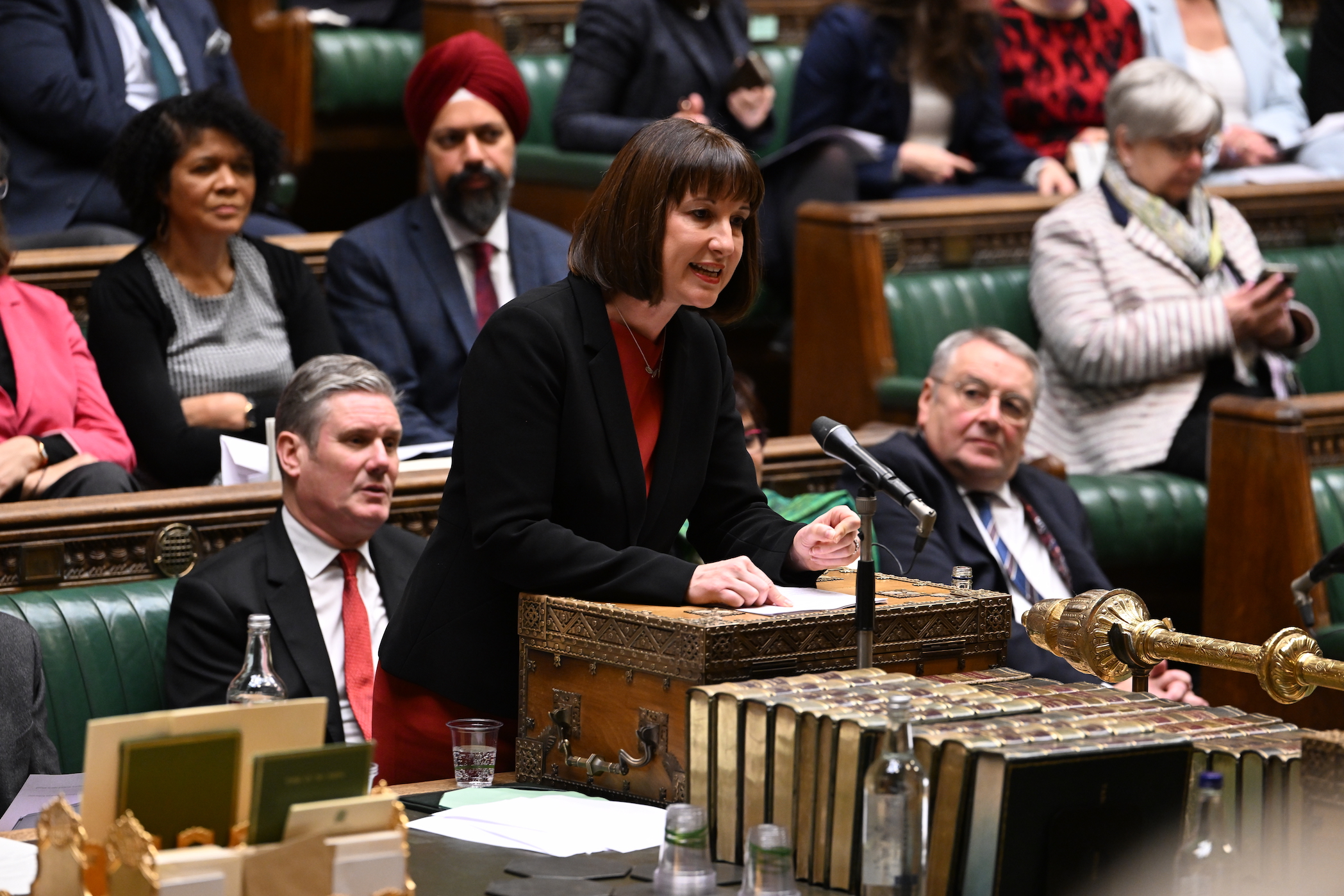Rachel Reeves has backtracked on Labour’s flagship plan to spend £28 billion a year on new green jobs and technology.
The shadow chancellor said this morning that the party would look to “ramp up” spending every year to the figure, as she blamed the new position on the financial position of the country and the Conservatives who she said had “crashed our economy”.
Asked how much a Labour government would now spend under its green prosperity plan in its first year in power, Ms Reeves told the BBC: “We will set out all of our numbers that are consistent with those fiscal rules as we get closer to the election.”
Ms Reeves said the £28billion figure previously set out by Labour would be a target to work towards rather than the amount initially allocated.


The figure had been outlined as investment to fund a range of green industries and other schemes such as home insulation.
When the commitment was first made in 2021, Rachel Reeves vowed to be “the first green chancellor”.
Sir Keir Starmer had looked to face down internal critics of the green energy plan earlier this week as he insisted that plans for £28 billion of investment in green energy would deliver economic growth.
The Labour leader, addressing the GMB union’s conference on Tuesday, said that he remains committed to Labour’s “green prosperity plan”
He said: “Our green prosperity plan, like President Biden’s inflation reduction act, is our plan for growth and because we are Labour it is also a plan for working people, their jobs and their prosperity.”
But the new position comes after days of internal and external criticism.
Gary Smith, the GMB’s general secretary, called Labour’s policy on oil and gas production “naïve” and lacking in “intellectual rigour”.
He was joined in his criticism by Unite General Secretary Sharon Graham, who said Labour must be “very clear that they will not let workers pay the price” for the transition to renewable energy.
The Conservatives said Labour had “surrendered their energy policy to their Just Stop Oil funders” — a reference to the £1.5m the party had received from donor Dale Vince.
The move also comes as Labour also suggested that it would scale back the oil and gas windfall tax.
Asked on Sky News this morning, Stephen Kinnock, the shadow immigration minister, said the windfall tax was only imposed in the first place due to Labour’s pressure, but accused ministers of leaving “loopholes” which allowed certain companies to “offset some of their windfall tax against investment”.
He said Labour would close that so the tax “generates its full potential”.
However, he also somewhat welcomed the move, saying: “A windfall tax by definition is a one-off. It’s not an inbuilt, structural, ongoing tax — it’s about taxing what is effectively the profits of war.”
Mr Kinnock said it’s “right there is a strategy for bringing those taxes to an end when the time is right, because it should only be on the basis of un-forecast profits”.
He added that aim should be to “ween ourselves off oil and gas” and invest in renewables. But he noted that fossil fuels will be an “important part of the mix” until the 2050s.

